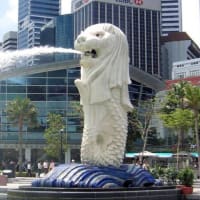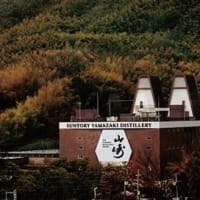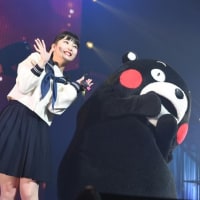
2016年05月18日(水)NEW !
テーマ:アメリカ
オバマが広島を訪問するにあたって、原爆投下について、しっかり世界へ伝えなくてはと思っていろいろ思案中です。 謝罪はよほどのことがなければしないでしょう。
謝罪は強制するものでもないですしね。
ルーズベルトが生きていればルーズベルトが謝罪すべき事だと思うし。。。彼は地獄でいまだに苦しんでいることでしょう。
被爆者の方々それぞれいろいろな思いがあるでしょうし。。。
こんなことを言ってはなんだけど、彼らの医療費等の免除やらは日本国民の税金でまかなわれています。 介護でももちろん、被爆者手帳を持っている方は優遇があります。原爆投下は広島や長崎の方を狙ったというわけではなく日本を狙ったのです。
被爆者の方々だけの思いではなく、日本人の問題だと私は思っています。
オバマは核廃絶などとかっこいいことを言うだけ言って、実際は世界中を混乱に陥れシナや北朝鮮にしたい放題され、核をなくすどころか北朝鮮には核をもたれてしまいました。
そんなオバマに利用されるだけだなんて、私は嫌です!!
世界中に広島と長崎での真実を知っていただきたいです。
アメリカが嘘をついて原爆を正当化していたり、隠したいがために南京虐殺やらをもでっち上げ、韓国の大嘘慰安婦問題も嘘だという証拠を持っていながら見て見ぬふりしている。 竹島問題もそう!! 真実を伝えるチャンスを逃さないようすべきです。
だいたい反論する人達の言う事は同じで、そういう人達はだいたい聞く耳を持たない事もわかっているので、コメントを読む人達に伝わり興味を持ってもらったり、自分の頭で考えるきっかけになれば良いかなと思っています。
英語でないとね。。。
いろいろ調べて、忘れないようにちょっとここの残しておこうと思います。
原爆投下をよしとしない軍人さん達も当時いてそのかたがおっしゃっていたことやら、原爆を正当化している軍人で、その人が原爆投下の前に日本に伝えたという嘘をついたことやら。。。 ヤフーの翻訳機を使ったものを時間がないので(もう眠いw)
申し訳ないのですがそのままコピペしましたw
ご自分で訳してみてくださいZzz…(*´?`*)。o○
The Decision to Drop the Atomic Bomb
About the Collection
This collection focuses on The Decision to Drop the Atomic Bomb. It includes documents totaling almost 600 pages, covering the years 1945-1964.
This collection focuses on The Decision to Drop the Atomic Bomb. It includes documents totaling almost 600 pages, covering the years 1945-1964.
Supporting materials include an online version of "Truman and the Bomb: A Documentary History," edited by Robert H. Ferrell.
(コレクションについて
このコレクションは、原子爆弾を落とすという決定に集中します。 それは、合計ほぼ600ページになっていて、1945-1964で年をカバーしている文書を含みます。
このコレクションは、原子爆弾を落とすという決定に集中します。 それは、合計ほぼ600ページになっていて、1945-1964で年をカバーしている文書を含みます。
支えサポートする材料は、「トルーマンと爆弾」のオンライン・バージョンを含みます: 文書の歴史」(ロバート・H・ファレルによって編集される)。)
The still-controversial history of the bombings involves disputes in areas such as sources, the uses of evidence, the standards for assessing and interpreting decision-making, and the basis for defining and evaluating morality and ethics in the context of war.
A key source in this contested history has been the evidence of individuals who were involved in the U.S. government’s development of and decision-making on nuclear weapons. Yet, many of these individuals, be they supporters or critics, somewhat rewrote their history in the aftermath of the August 1945 bombings.
Untangling postwar contentions from actual pre-Hiroshima actions is generally not a simple matter. It requires close attention to pre-Hiroshima archival sources, which account for well more than 100,000 pages in multiple libraries. In using these sources, the analyst should give much greater weight to the pre-Hiroshima sources than to the later, postwar claims in cases of significant discrepancies.
After the war, in memoirs and in related statements, three former wartime members of the U.S. Joint Chiefs of Staff—Admiral William Leahy, the de facto chairman of the Joint Chiefs; General Henry Arnold, head of the Army Air Forces, and Admiral Ernest King, head of the Navy—publicly raised sharp questions about the military-political necessity of those atomic bombings and indicated there were other ways of ending the war. In his own widely reviewed memoir I Was There,1 Leahy passionately condemned the bombings as unethical and even barbarous. Yet, the available records, including his own diary, give no indication that he expressed this opinion to Truman or to any other government associate before the bombings.
爆破のまだ論争の的となる歴史は、論争を地域(例えば源、証拠を使う自由、意思決定を評価して、解釈することのための基準と戦争の前後関係で道徳と倫理を定めて、評価するための基礎)に関係させます。
この争われた歴史の重要な源は、核兵器の米国政府の開発とそれの意思決定に関与していた個人の証拠でした。 まだ、これらの個人で多くで、彼らサポーターであってください、さもなければ、批評家は1945年8月の爆破の余波で彼らの歴史をいくぶん書きかえました。
実際のプレ広島アクションから戦後の主張を解くことは、通常、単純な問題でありません。 それはプレ広島アーカイブの源に対する精密な注意を必要とします。そして、それは複数の図書館でかなり100,000ページ以上を占めます。 これらの源を使う際に、アナリストはプレ広島関係者に、かなりの矛盾の場合には後の、戦後の主張により非常に大きな重さを与えなければなりません。
回顧録で、そして、関連した声明、米国統合参謀本部―提督ウィリアム・レーヒーの3人の前戦時メンバー、共同のチーフスの事実上の議長で、戦争の後; ヘンリー・アーノルド将軍、陸軍航空隊の上部とアーネスト・キング提督は、公的にNavy―のそれらの原子爆弾の投下の軍の政治的な必要性についての高くなった厳しい質問の先頭にたって、戦争を終える他の方法があることを示しました。
非倫理的で野蛮であるようにさえ、私がそうであった彼自身の広く批評された伝記では、There,1レーヒーは爆破を情熱的に非難しました。それでも、利用できる記録(彼自身の日記を含む)は、彼がこの意見をトルーマンに、または、爆破の前の他のどの政府同僚にも表現したという徴候を与えません。
Marshall’s Reshaped History
After the war, Marshall apparently never disclosed, even to his official biographer, historian Forrest Pogue, that, at the May 29 meeting with Stimson and McCloy, he had sought to alter the course of nuclear history as it was then unfolding.
McCloy’s minutes of the May 29 meeting, the only available record of Marshall’s secret counsel there, were not declassified until about two decades after the general’s October 1959 death. Dismayingly, that documentary record has generally been of little or no interest to most historians studying nuclear weapons or Marshall.
While concealing his May 1945 effort, Marshall himself, in an interview with Pogue in February 1957, somewhat rewrote the pre-Hiroshima history on the atomic bomb.
Marshall contended incorrectly that the Truman administration, before the first atomic bombing of Japan, had provided the Japanese with a vague warning of the planned use by the United States of that new weapon on Japan. Although the United States had issued broad warnings about large-scale destruction, it never gave Japan an explicit warning about the atomic bomb in the run-up to the Hiroshima bombing.
One wonders—admittedly, in the absence of evidence—whether Marshall’s flawed recollection, as captured by Pogue, was an expression of the general’s unacknowledged personal regret. It might also have been an effort to protect his president, government, and country.
At the May 29 meeting, Marshall had unsuccessfully sought to reshape the future, and in 1957, he sought to reshape the past. He largely failed in those two efforts. By remaining silent about his advice of May 29, he helped obscure the possibility of a different history of nuclear weapons.
Stimson never mentioned Marshall’s May 29 advice in his memoir and in an article that drew on it. McCloy did not either in his many postwar commentaries, even though they often were critical of the atomic bombings. Truman, in his ghost-written memoir and elsewhere, never mentioned and probably never knew of Marshall’s urgings on the targeting of nuclear weapons.
マーシャルの再構築された歴史
戦争の後 ― マーシャルが、明らかに決して明らかにしなかった ― 彼の公式伝記作者、歴史家フォレスト・ポーグ、それにとってさえ、スティムソンとマクロイとの5月29日の会談で、それからそれが展開していたので、彼は核歴史のコースを変えようとしました。
5月29日の会議(そこのマーシャルの秘密の助言の唯一の利用できる記録)のマクロイの議事録は、将軍の1959年10月の死の20年後に頃まで機密扱いを解かれませんでした。 Dismayinglyに、その記録的なレコードは、通常、核兵器またはマーシャルを研究している大部分の歴史家にとってのほとんどあるいはまったく興味でありませんでした。
彼の1945年5月の努力を隠している間、マーシャル自身は、1957年2月のポーグとのインタビューにおいて、原子爆弾の上でプレ広島史をいくらか書きかえました。
マーシャルは、トルーマン政権が、日本の最初の原子爆弾の投下の前に、日本でその新しい武器のアメリカ合衆国によって日本人に予定の使用の漠然とした予告を提供したと誤って主張しました。
アメリカ合衆国が大規模な破壊についてわかりやすい警告を発したが、それは広島爆破への前段階で原子爆弾について日本に露骨な警告を決して与えませんでした。
1明らかにwonders―ポーグによって捕えられるように、evidence―がない場合、マーシャルのものが記憶をだいなしにしたかどうかは将軍の認知されていない遺憾の意の表現でした。 それは、彼の大統領、政府と地方を保護する努力でもあったかもしれません。
5月29日の会議で、マーシャルは失敗して将来を再構築しようとしました、そして、1957年に、彼は過去を再構築しようとしました。 彼は、主にそれらの2つの努力に失敗しました。
5月29日の彼のアドバイスについて沈黙を守るままのことによって、彼は核兵器の異なる歴史の可能性を不明瞭にするのを手伝いました。
スティムソンは、彼の伝記で、そして、それに頼った冠詞でマーシャルの5月29日のアドバイスに決して言及しませんでした。 たとえ彼らが原子爆弾の投下にしばしば批判的だったとしても、マクロイは彼の多くの戦後の解説においてどちらもしませんでした。 トルーマンは、彼の幽霊書面にした伝記において、そして、どこかほかで、核兵器を目標とすることに、urgingsに決して言及しないで、多分マーシャルの決して知っていなかったでしょう。
【A B-29 over Osaka
on June 1, 1945】





















